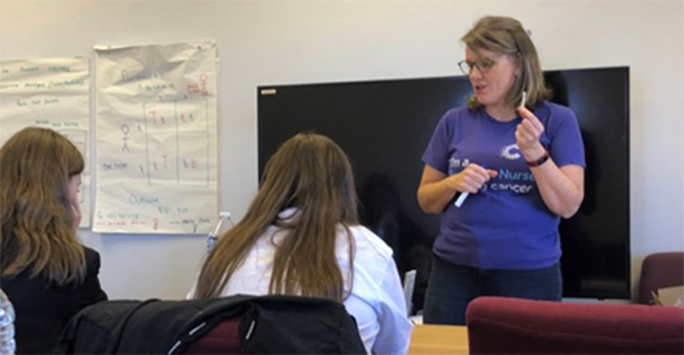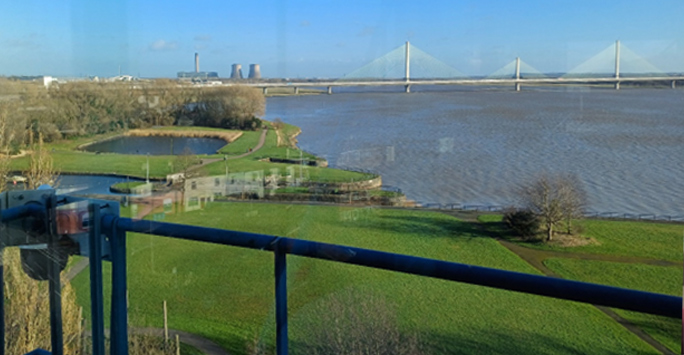
Widnes has for many years been the home to chemical factories, and has its own museum dedicated to chemistry. Catalyst Science Discovery Centre overlooking Spike Island on the River Mersey, hosted a Chemistry at Work Week in January.
As a research nurse based at The University of Liverpool, I work alongside scientists from many disciplines, including chemists, all contributing their expertise to make discoveries and develop medicines for people affected by cancer.
Dr Laura Randle, Senior Lecturer in Pharmacology and Therapeutics, joined me to talk about our different areas of work and engage school students from Year 9 with an interactive science activity. Laura is investigating cholangiocarcinoma, a rare cancer but with increasing incidence, and she has an inspiring career as an academic research leader. Catalyst spoilt us with a hot lunch, endless tea and coffee, along with the opportunity to wander around their exhibits and appreciate the 360° view from the roof top gallery.

The students tested themselves for their ability to taste the bitterness of phenylthiocarbamide using PTC test strips. Tasting the paper was met with some apprehension from students; their reactions from disgusted to perplexed demonstrated genetic variation. We spoke more about genetic inheritance and the increasing relevance of genomic testing in both cancer diagnosis and personalised treatments for cancer. Having worked with Familial Adenomatous Polyposis families, who have germline mutations leading to the development of polyps (early cancers) in their large bowel, and more recently on Precision Panc clinical trial, where patients with pancreas cancer undergo molecular testing of their tumour to discover if treatment can be guided, I have plenty of experience to draw on.
Laura and I engaged with 90 of the 312 students who met with 60 industry partners at Catalyst during the week. Many of the students attending were from schools with large numbers of ‘pupil premium places’ - those that receive greater funding for disadvantaged students. The week had several aims, such as encouraging students to study separate science subjects at GCSE, discovering science-based careers, and to increase the understanding of science in everyday life.
The school students were guided around presentations by students from Cronton 6th Form College, who joined in on the fun. It was pleasing to see that in their feedback they recognised that the subject of cancer can be uncomfortable yet felt that we were approachable. In every group, there was at least one student who shared their personal experience of having a relative diagnosed with cancer. It is their bravery in sharing this that opens up conversations about cancer and the hope that research brings.